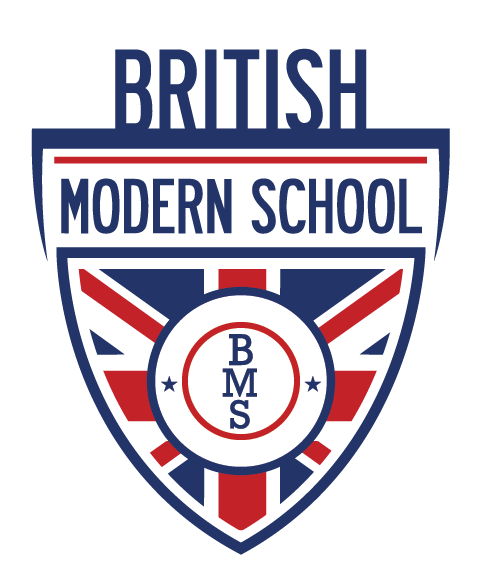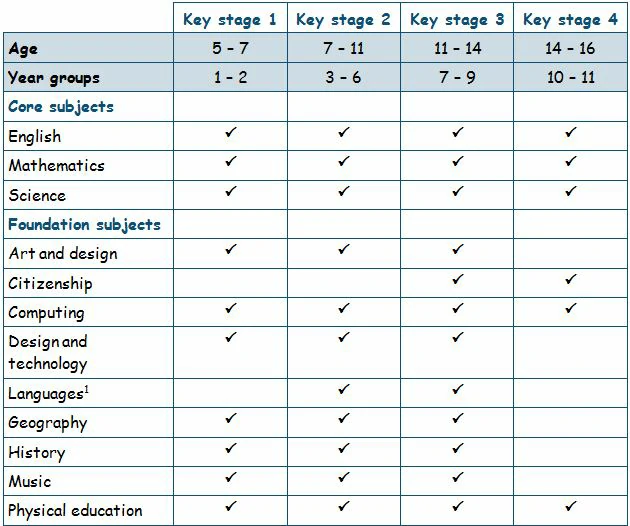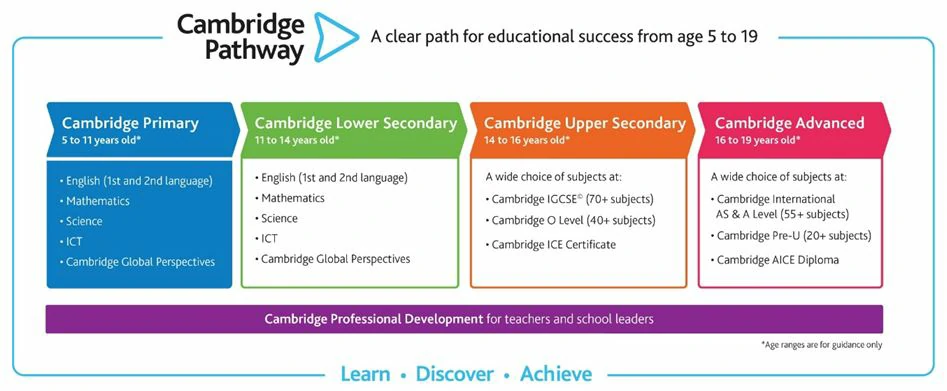Curriculum
British Modern School is a leading international school in Egypt offering the Cambridge curriculum in a supportive, inclusive environment.
- Curriculum
- Foundation Stage (FS)
- Key Stage (1-2)
- Cambridge Lower Secondary (Key Stage 3)
- IGCSE Cambridge Upper Secondary (Key Stage 4)
Key stages (1-4)
The British Education system comprises four key stages 1-4 with ages range from 5-16.
The four stages lead seamlessly from primary to secondary and pre-university years. Each stage builds on the students’ development from the previous one, but can also be offered separately.
BMS is an accredited and registered Associate Cambridge School. Cambridge registered schools prepares students from Y1-12 for life, helping them develop an informed curiosity and a lasting passion for learning which are pre-requisites for learner autonomy.
Cambridge Pathway
Cambridge recognises that a meaningful curriculum is more than a collection of subjects
Learners need to develop a set of academic skills, life skills and attitudes to be successful. With this in mind, Cambridge Pathway gives students a clear path for
educational success from age 5 to 19. Its wide range of subjects and flexibility gives schools the chance to shape the curriculum so that it is exciting and relevant for their own students.
Cambridge Pathway helps students have the chance to acquire the knowledge and skills they need to achieve at school, university and beyond. Cambridge Pathway gives students a clear path for educational success. It helps students discover new abilities and a wider world, and gives them the skills they need for life, so they can achieve in school, university, their future careers and in society.
Foundation Stage (FS)
This is a very crucial stage as it helps children get ready for school as well as prepare them for their future learning and successes. From birth until the age of 5, children early years experience should be happy, active, exciting, fun and secure; and support their development, care and learning needs.
Indeed, every child deserves the best possible start in life and the support that enables them to fulfil their potential. Children develop quickly and at an alarming rate in the early formative years and a child’s experiences between birth and five have a major impact on their future life chances. A secure, safe and happy childhood is important in its own right. Good parenting and high quality early learning together provide the foundation children need to make the most of their abilities and talents as they grow up. This is why we, at the BMS focus on strengthening home-school connections and maintaining a strategic partnership.
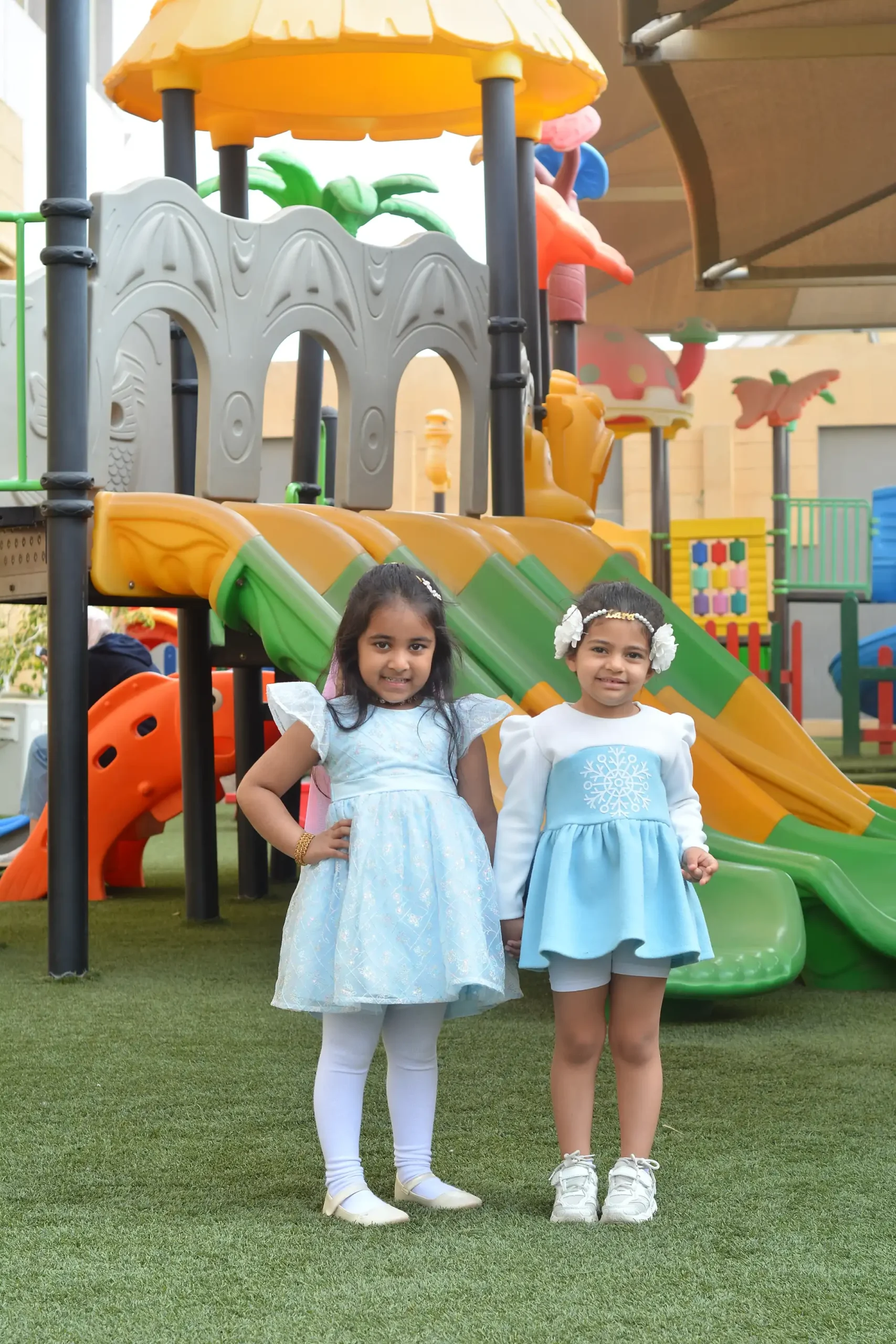
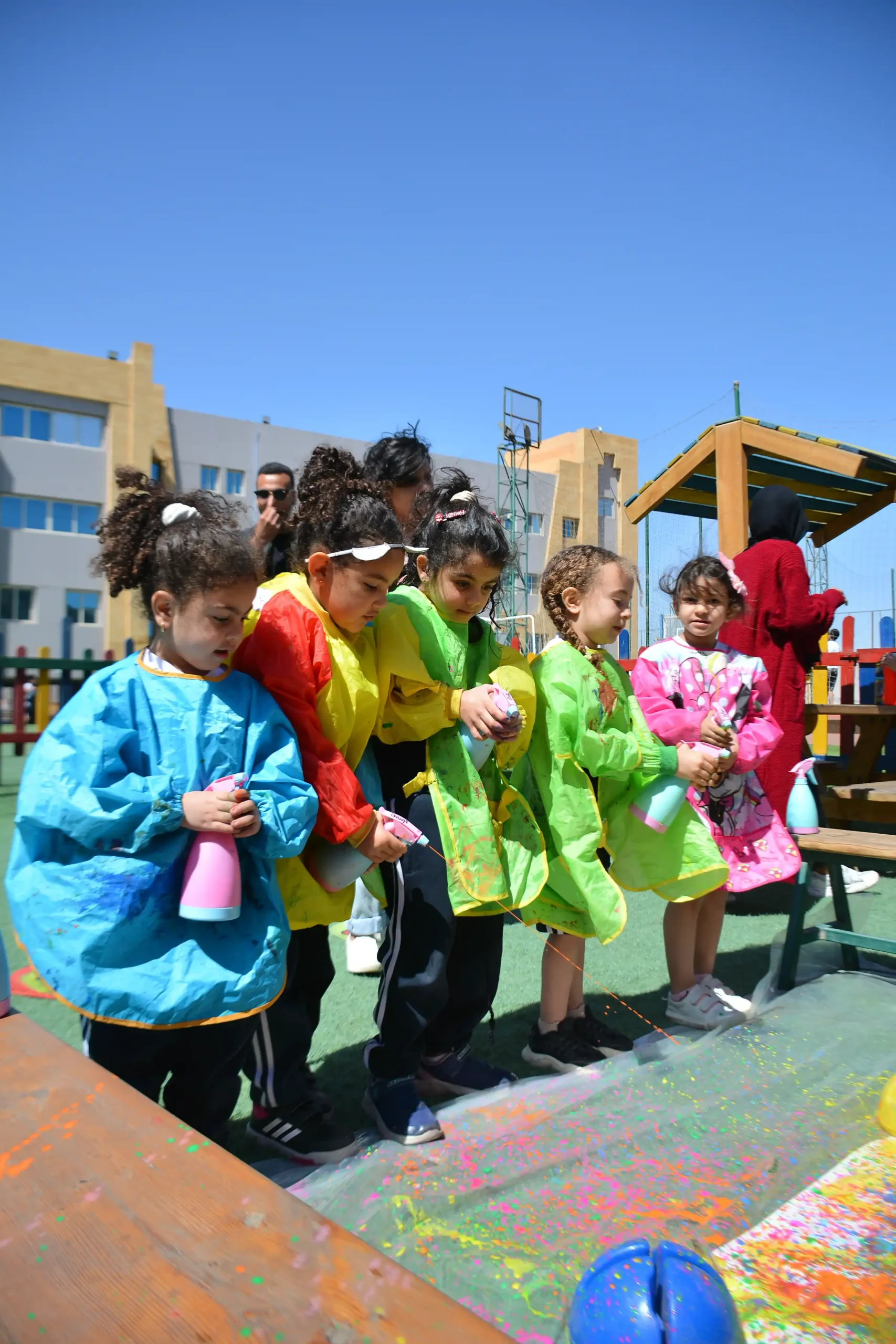
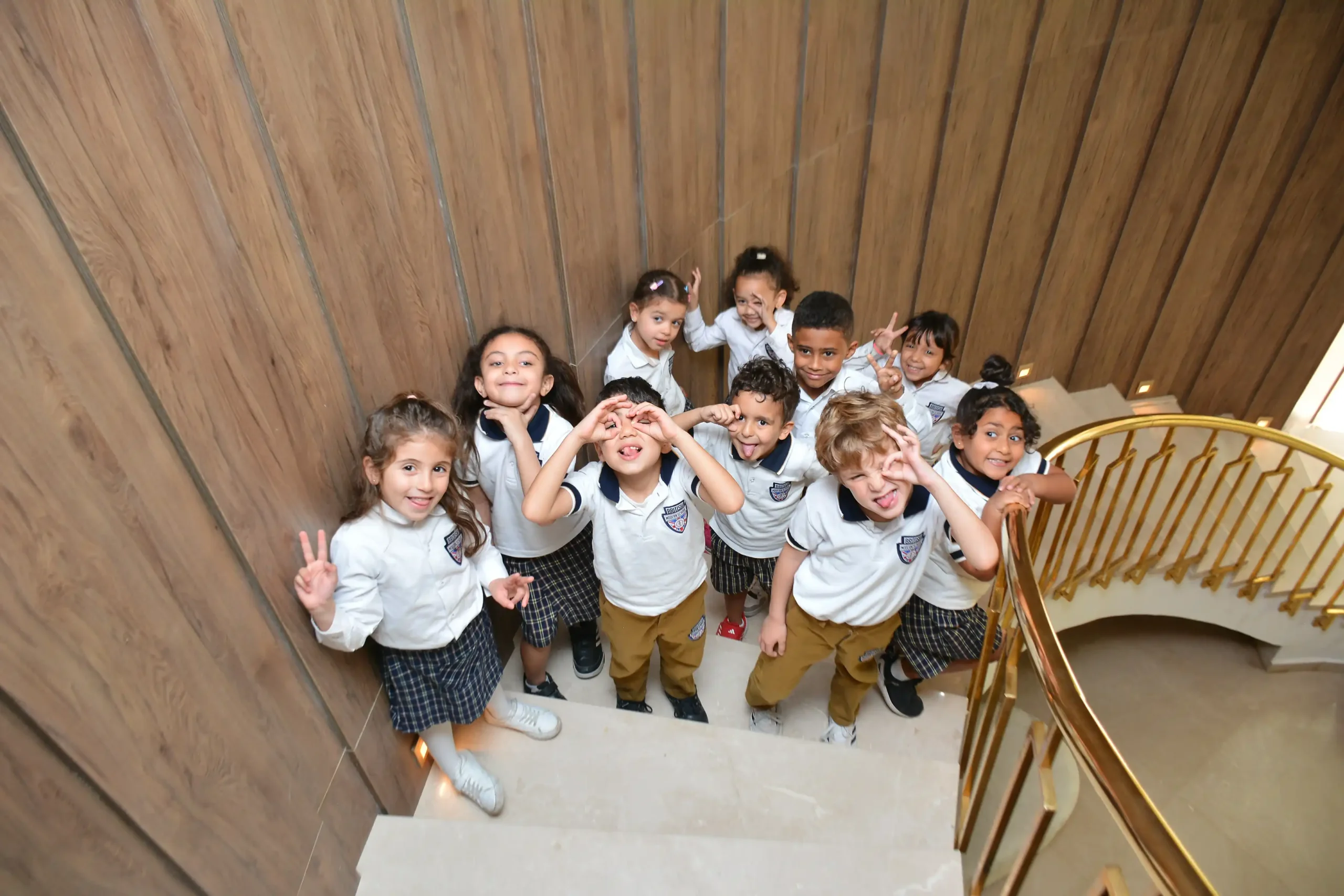
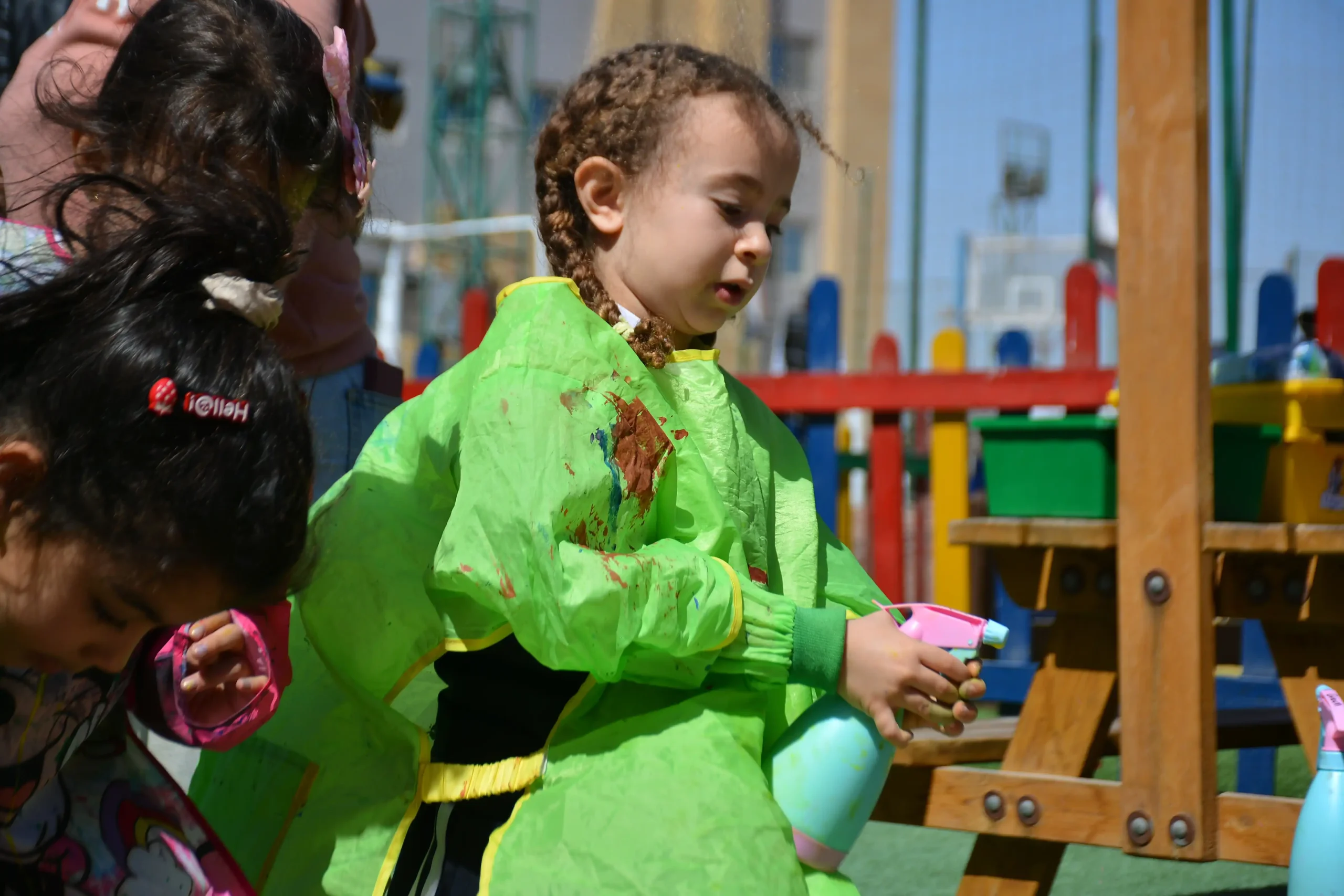
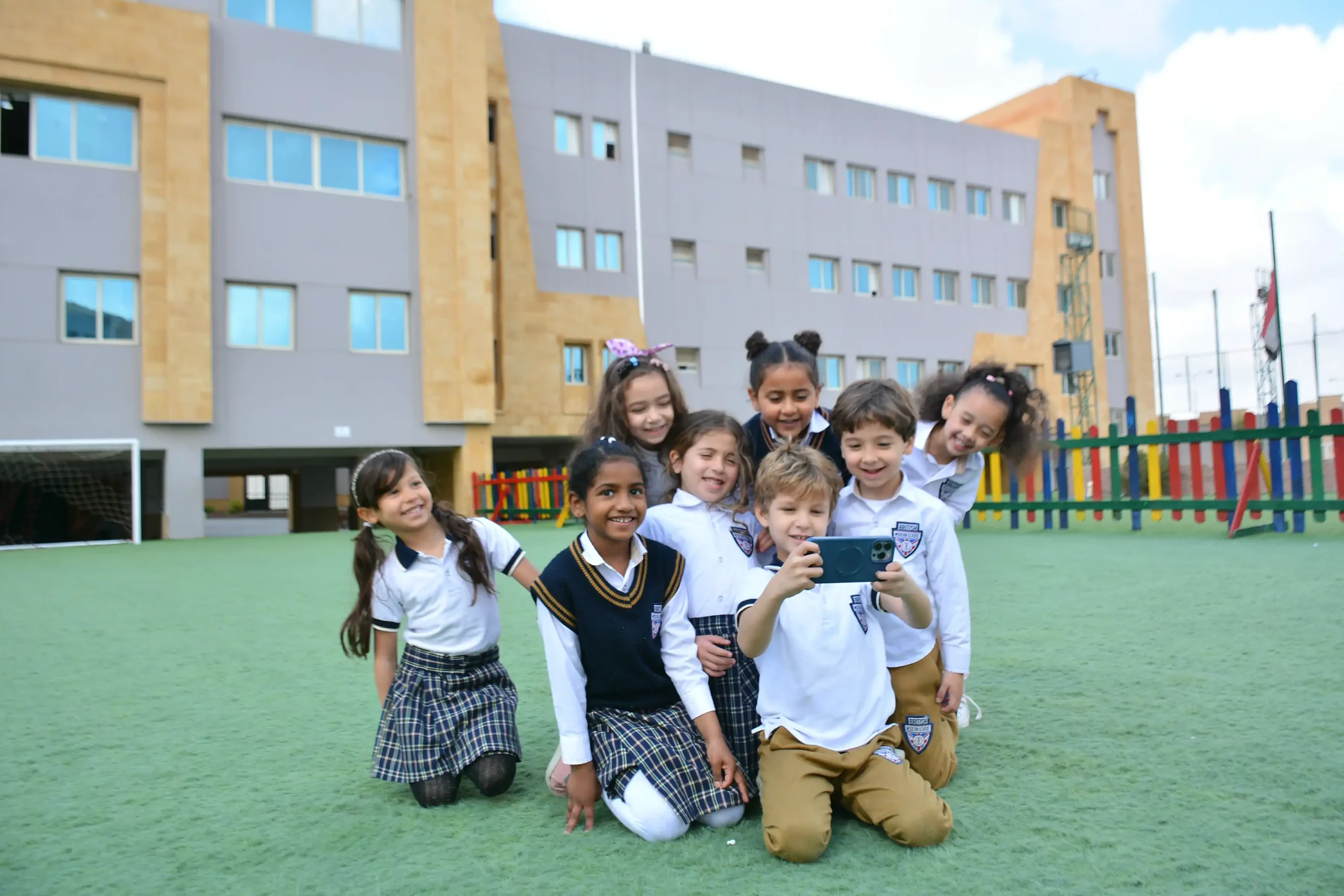
The BMS endeavour is to help kids enjoy learning in a safe, healthy, supportive and pressure free environment that smoothly help them make the transition from home to school. Such a smooth transition is done via Edutainment Approach, an approach which helps promote a positive attitude towards education in general and school in particular via full engagement and enjoyment. During these early formative years in which children develop rapidly and at an alarming rate (physically, intellectually, emotionally and socially), our target at the BMS is to help develop the kids’ all-round character, namely, cognitive, social, intellectual, emotional and motor abilities. This will be achieved via class learning, group learning, individual learning and free playing.
The EYFS Seeks to Provide
in all early years settings, so that every child makes good progress and no child gets left behind
through learning and development opportunities which are planned around the needs and interests of each individual child and are assessed and reviewed regularly
and strong home-school connections between teachers, school administration and parents
ensuring that every child is included and supported.
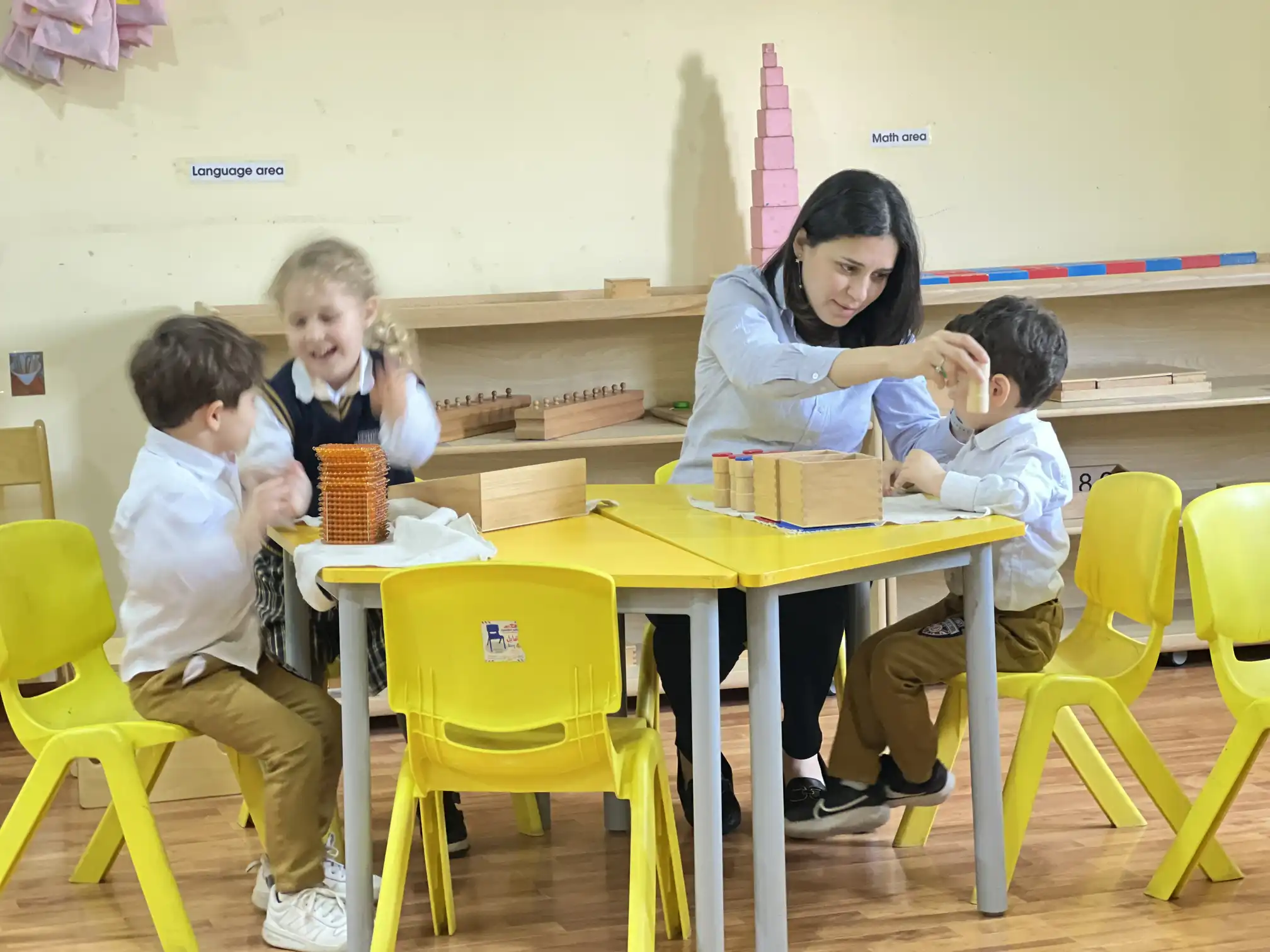

EYFS Overarching Principles
Four guiding principles shape practice in early years settings at the BMS. They are:
who is constantly learning and can be resilient, capable, confident and self-assured.
Children learn to be strong and independent through positive relationships.
Children learn and develop well in enabling environments, in which their experiences respond to their individual needs and there is a strong partnership between practitioners and parents.
Empowering future leaders through learning and growth.
What EYFS Children Really Need
EYFS Areas Of Learning & Development
There are seven areas of learning and development that shape educational programmes in early years settings. All areas of learning and development are important and inter-connected. Three areas are particularly crucial for igniting children’s curiosity and enthusiasm for learning, and for building their capacity to learn, form relationships and thrive.
7 Areas of Learning and Development
Your child will be learning skills, acquiring new knowledge, and demonstrating their understanding through 7 areas of learning and development.
With a strong emphasis on the 3 prime areas that are essential for their healthy development and future learning. As children grow, these prime areas will help them develop skills in 4 specific areas, ensuring a well-rounded educational experience.
These 7 areas are used to plan your child’s learning and activities. The professionals teaching and supporting your child will make sure that the activities are suited to your child’s unique needs. This is a little bit like a curriculum in primary and secondary schools, but it is suitable for very young children, and it is designed to be really flexible so that staff can follow your child’s unique needs and interests. Children in the FS learn by playing and exploring, being active, and through creative and critical thinking which takes place both indoors and outside
Cambridge Primary Key Stage 1 & 2 (Age 5 to 11)
Cambridge Primary: Fostering Confidence and Innovation in Young Learners:
Cambridge Primary is an international education programme, typically for young pupils (5 to 11 years). It starts students on an exciting educational journey, setting out what they should be able to do at each stage of their primary education.The programme develops young pupils who are confident, responsible, reflective, innovative and engaged.Cambridge Primary includes assessment that proves and improves learning.Cambridge Primary develops students skills and understanding through the primary years in core subjects, namely English, Mathematics, Science,which form an excellent foundation for future study; Cambridge Lower Secondary, and for progression to other educational systems.It provides a natural progression throughout the years of primary education.

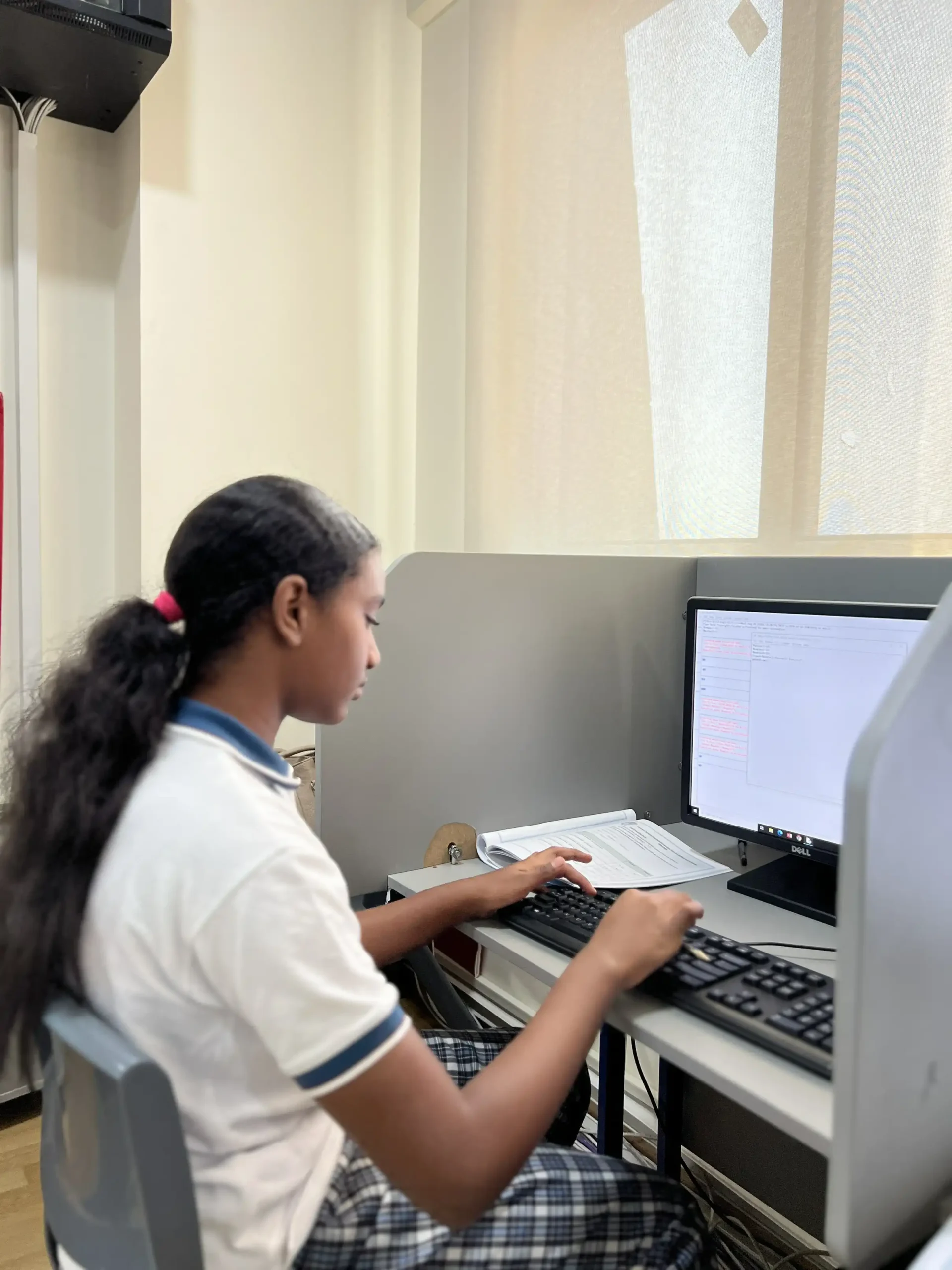

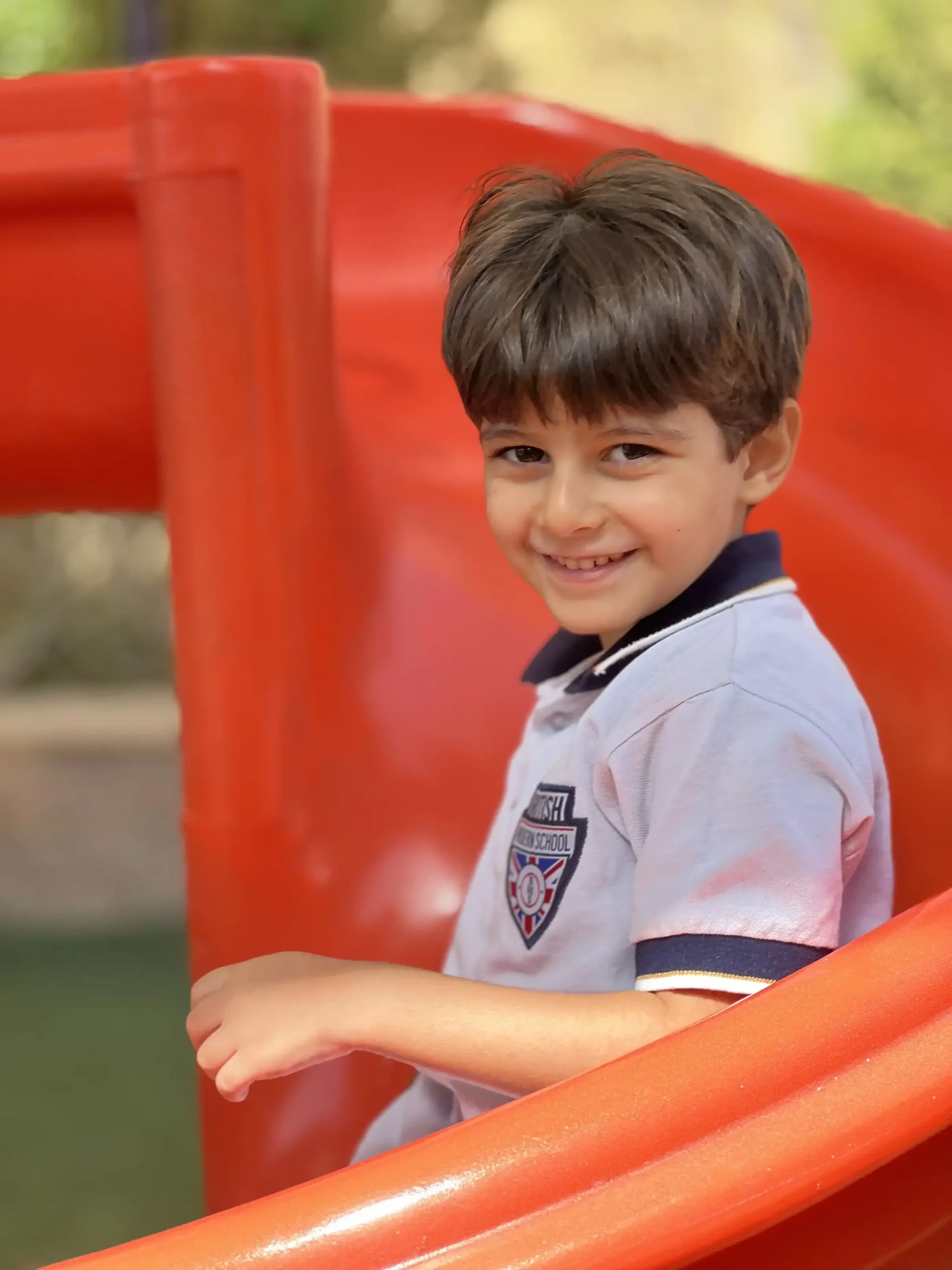
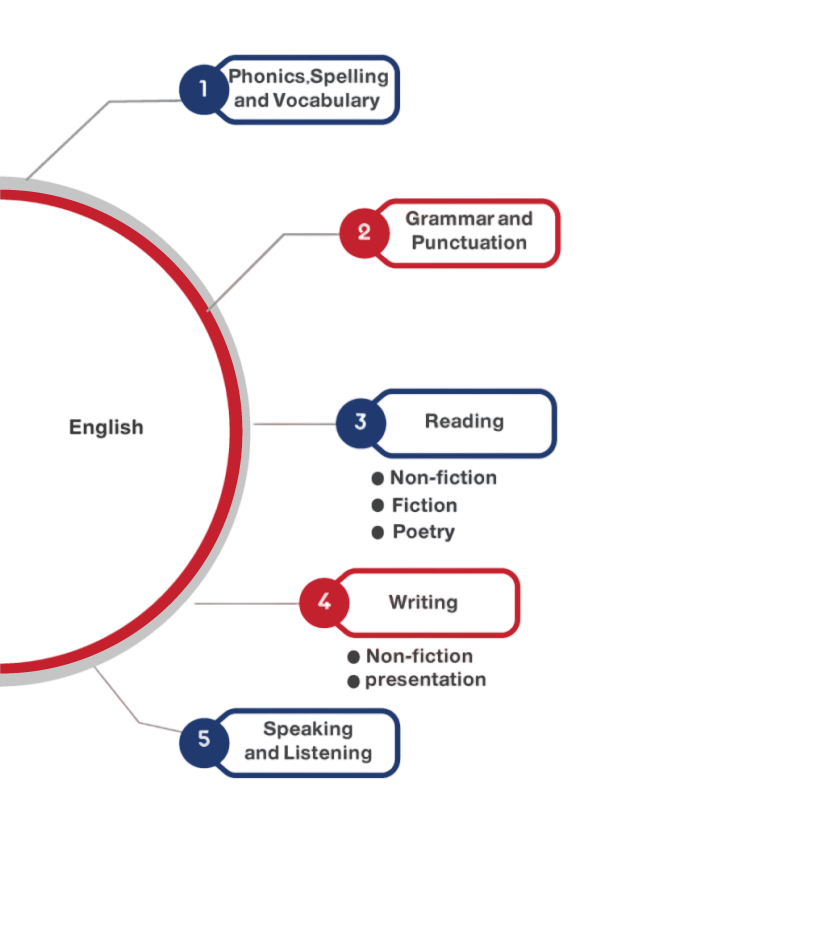
English
The curriculum aims to enable learners to communicate confidently and effectively and to develop critical skillsin order to respond to a range of information, media and texts with enjoyment and understanding.
Learners who follow this framework will develop a first- language competency in English based on a curriculum designed to be successful in any culture and to promote cross- cultural understanding. The Cambridge Primary English curriculum framework provides a solid foundation on which the later stages of education can be built.
Mathematics
The Cambridge Primary Mathematics curriculum focuses on principles, patterns, systems, functions, and relationships so that learners can apply their mathematical knowledge and develop a holistic understanding of the subject. The curriculum framework explores the following five content areas: Number, Geometry, Measure, Handling Data, and Problem Solving. At the British Modern School (BMS), we bring these areas to life through our distinctive BMS School Concept, which prioritizes differentiated learning and personalized instruction. Our educators tailor lessons to each student’s unique learning style, ensuring they thrive in a supportive environment.
Through hands-on activities, real-world applications, and collaborative projects, BMS students develop a deep understanding of mathematics while honing their critical thinking and problem-solving skills.
This approach not only aligns with Cambridge’s goals but also inspires confident, engaged learners ready for future academic success.
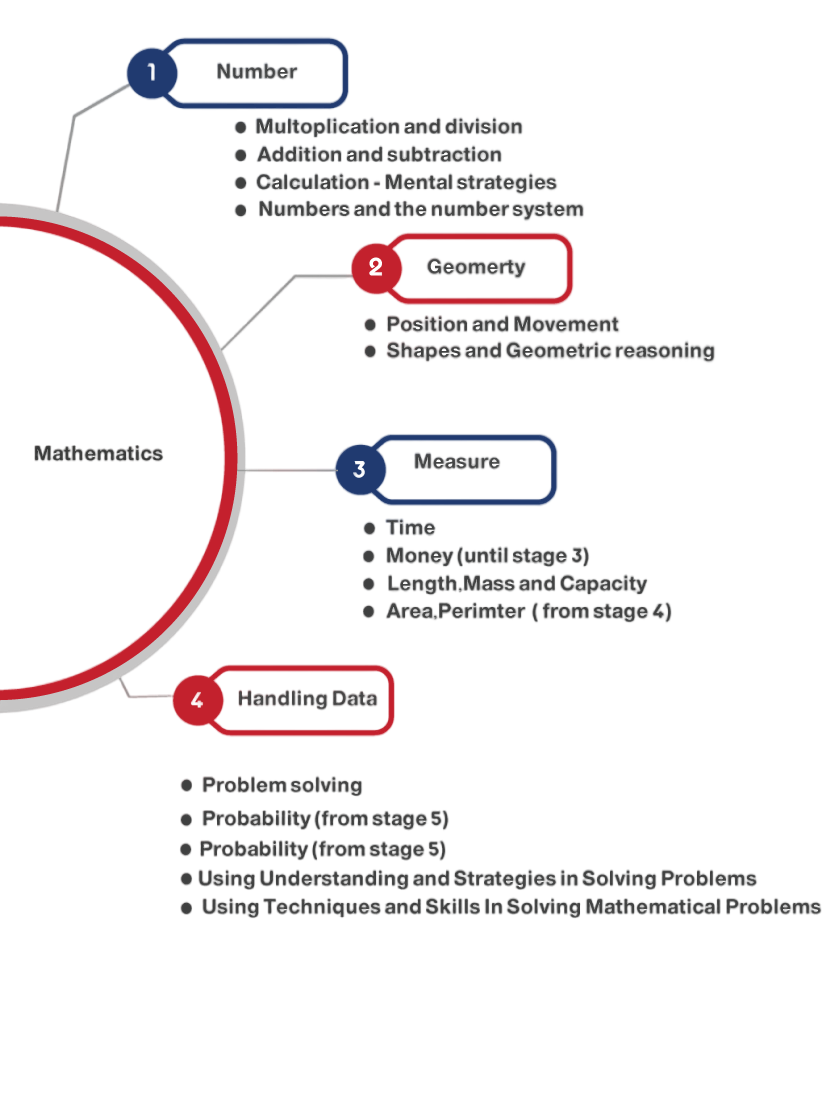
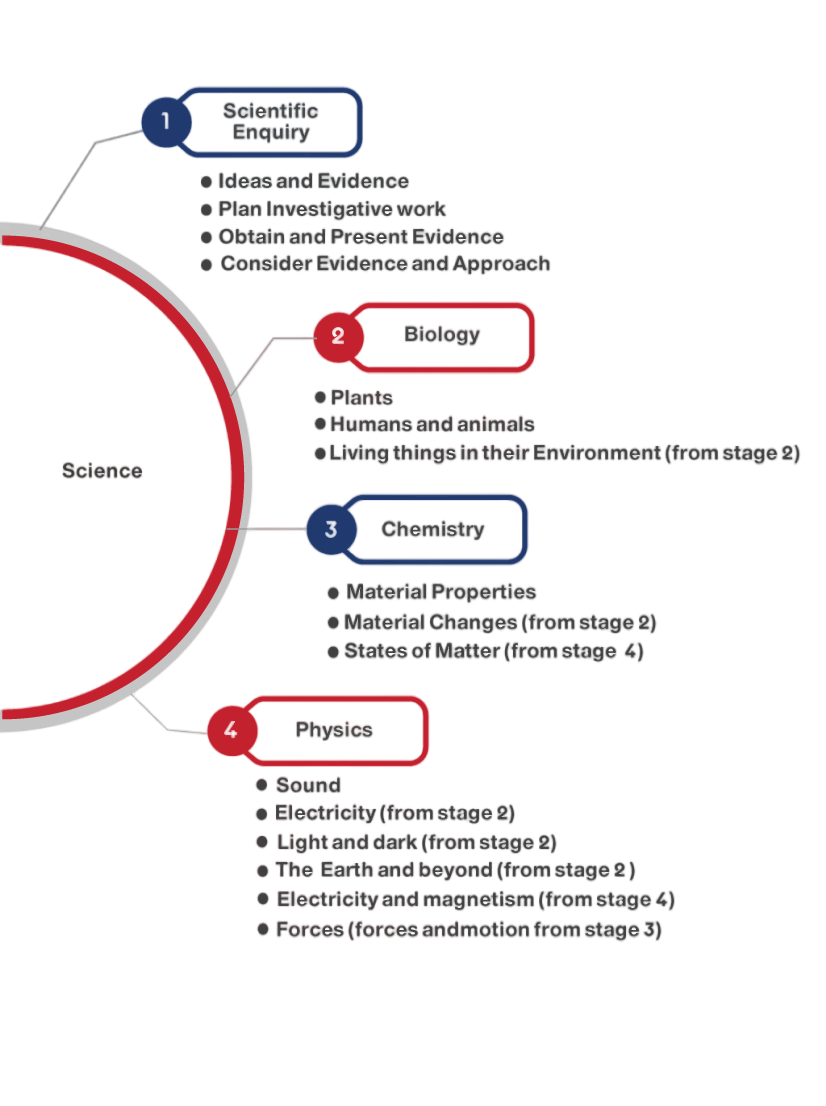
Science
The Cambridge Primary Science curriculum framework explores the following four content areas: Scientific Enquiry, Biology, Chemistry, and Physics. At the British Modern School (BMS), these subjects are brought to life through our distinctive BMS School Concept, which prioritizes differentiated learning and personalized instruction. We recognize that every student has a unique learning style and pace, so our educators tailor lessons to meet individual needs, ensuring all students thrive.
Through hands-on experiments, collaborative projects, and real-world applications, BMS students gain a deep understanding of scientific principles while sharpening their critical thinking skills and igniting a passion for discovery. This approach not only aligns with the Cambridge philosophy but also fosters a supportive environment where curiosity flourishes, empowering students to build a solid foundation for future academic success. At BMS, science education is more than just learning facts—it’s about inspiring confident, engaged learners ready to explore the world.
Assessment

Cambridge Primary Progression Tests
provide detailed information about the performance of your child for each stage starting from year 3 onward in all the core subjects (English – Science – Maths).
enable teachers to give structured feedback to students and parents
enable teachers to compare the strengths and weaknesses of individuals and groups
are marked by teachers in your school.
for Primary Success
Cambridge Primary Checkpoint
- Designed to test skills, knowledge and understanding at the end of the primary programme in English, maths, science and Cambridge Global Perspectives.
- Cambridge Primary Checkpoint tests are used at the end of Cambridge Primary and offer feedback on a student’s strengths and weaknesses in the key curriculum areas of English, mathematics and science.
- Cambridge Primary Checkpoint tests are marked by Cambridge and provide schools with an external international benchmark for student performance – an invaluable source of information for students, parents and teachers.
- There is also a Cambridge Primary Checkpoint assessment for our Global Perspectives course – students produce a team project that is marked by teachers and moderated in Cambridge.
- Provides foundation for further study – it is an excellent preparation for Cambridge Lower Secondary for students aged 11 to 14 years, and for progression to other educational systems.
For Cambridge Primary English, the curriculum is presented in five content areas or strands. These are further subdivided into ‘sub-strands’. The framework promotes an enquiry-based approach to learning to develop thinking skills and encourage intellectual engagement. The five strands and sub-strands are:

Cambridge Lower Secondary
Cambridge Lower Secondary develops skills and understanding in English, mathematics and science between Years 7 and 8.
It combines a world-class curriculum and integrated assessment. At the BMS we use the Cambridge Lower Secondary Curriculum for mathematics, science and English.
Cambridge Lower Secondary provides excellent preparation for Cambridge Upper Secondary and we use Cambridge Lower Secondary Checkpoint tests to assess our students’ readiness for the next stage of education.
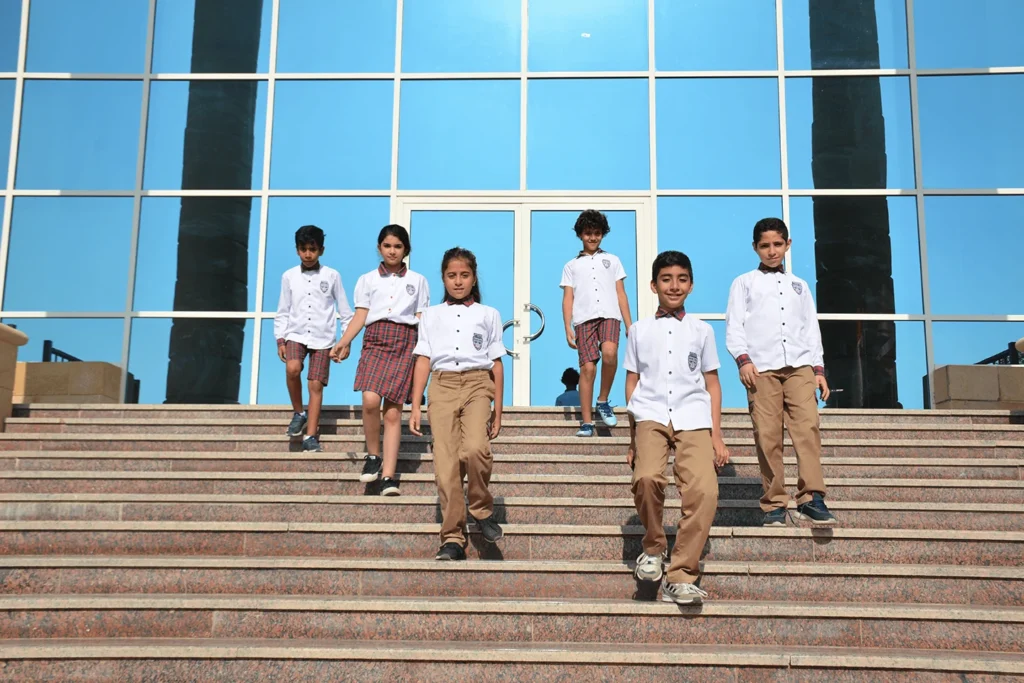
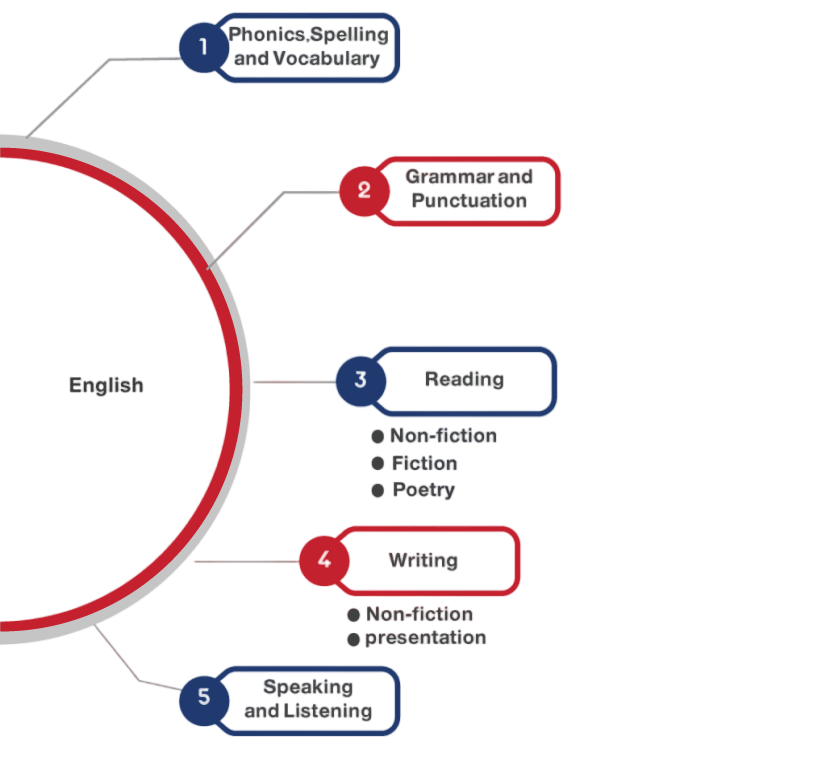
English
The Cambridge Lower Secondary English curriculum framework explores the following five content areas: Reading, Writing, Speaking and Listening, Grammar and Vocabulary, and Spoken Language.
At the British Modern School (BMS), we enrich this curriculum through our unique BMS School Concept, which emphasizes differentiated learning and personalized instruction to cater to each student’s individual needs and learning pace. Our dedicated educators foster a dynamic and engaging environment where students develop their English skills through interactive activities, creative writing projects, and collaborative discussions that enhance their communication and critical thinking abilities.
By integrating real-world applications and culturally relevant texts, BMS ensures students not only master the curriculum but also grow into confident, reflective, and articulate communicators. This approach aligns seamlessly with the Cambridge framework, preparing students for future academic challenges, including progression to Cambridge Upper Secondary, while nurturing a lifelong passion for language and literature.
Mathematics
The curriculum framework explores the following five content areas: Number, Geometry, Measure, Handling Data, and Problem Solving.
At the British Modern School (BMS), we bring this framework to life through our distinctive BMS School Concept, which prioritizes differentiated learning and personalized instruction to meet the unique needs and learning styles of each student. Our educators create an engaging and supportive environment where students develop a deep understanding of these content areas through hands-on activities, real-world problem-solving tasks, and collaborative projects. This approach not only strengthens students’ mathematical skills but also fosters critical thinking, creativity, and confidence, aligning with the Cambridge curriculum’s goals.
By integrating practical applications and tailored instruction, BMS ensures students are well-prepared for future academic challenges, such as progression to Cambridge Lower Secondary and beyond, while cultivating a lasting appreciation for mathematics.
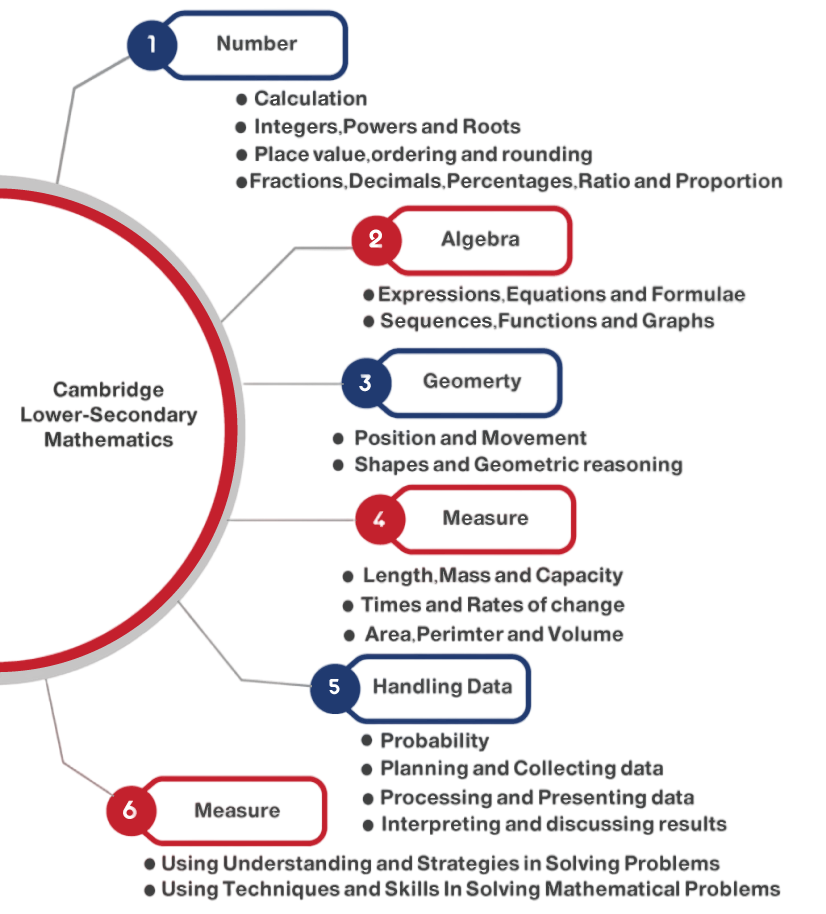
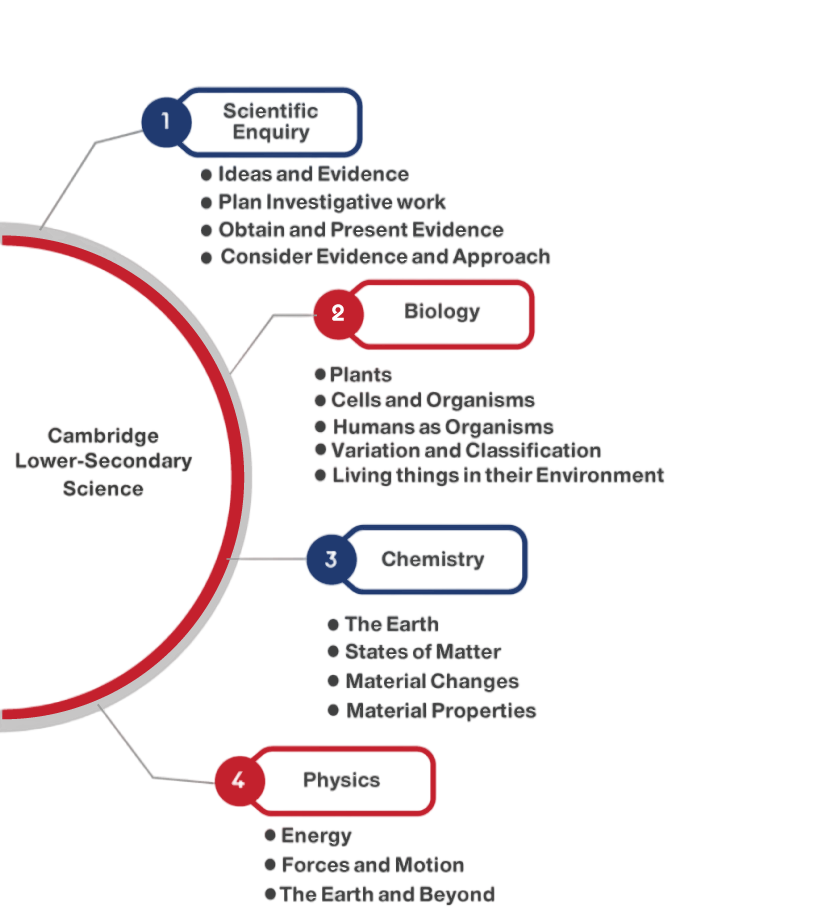
Science
The Cambridge Lower Secondary Science curriculum framework explores the following four content areas: Scientific Enquiry, Biology, Chemistry, and Physics. At the British Modern School (BMS), we enrich this framework through our unique BMS School Concept, which emphasizes differentiated learning and personalized instruction to cater to each student’s individual learning style and pace.
Our educators bring science to life with hands-on experiments, interactive projects, and real-world applications that ignite curiosity and deepen understanding.
By fostering a supportive and engaging environment, BMS ensures students develop critical thinking, problem-solving skills, and a passion for scientific discovery. This approach aligns seamlessly with the Cambridge curriculum, preparing students for future academic success, including progression to Cambridge Upper Secondary, while nurturing confident, inquisitive learners ready to explore the wonders of science.
IGCSE Cambridge Upper Secondary (Key Stage 4)
ambridge Upper Secondary is for students in Years 9 and 10 and it provides students with the qualifications of IGCSE’s. It builds on the foundations of Cambridge Lower Secondary. At BMS we incorporate Cambridge Upper Secondary Curriculum for mathematics, science and English alongside the British Curriculum.
Cambridge IGCSE develops student’s knowledge, understanding and skills in:
- Subject content
- Applying knowledge and understanding to new as well as unfamiliar situations
- Intellectual enquiry
- Flexibility and responsiveness to change
- Working and communicating in English
- Influencing outcomes
- Cultural awareness.
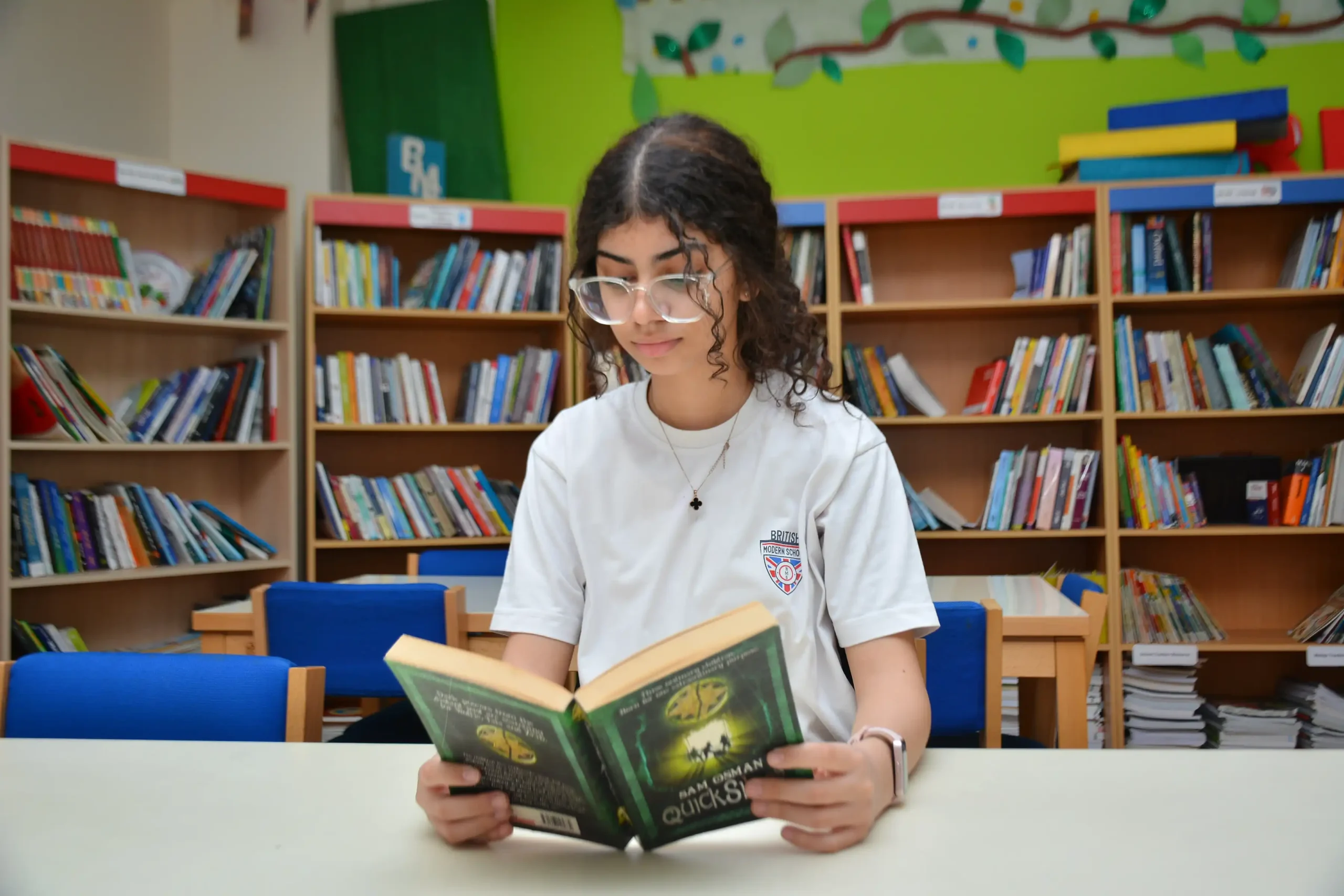
Students will study the following 3 compulsory subjects
enable teachers to give structured feedback to students and parents
provide detailed information about the performance of your child for each stage starting from year 3 onward in all the core subjects (English – Science – Maths).
enable teachers to compare the strengths and weaknesses of individuals and groups
Assessment

Plus the option of
enable teachers to give structured feedback to students and parents
provide detailed information about the performance of your child for each stage starting from year 3 onward in all the core subjects (English – Science – Maths).
IGCSE/GCE Fields of Study at the BMS
Cambridge Advanced - AS, A & O-Levels
Cambridge Advanced is for students in Years 11 & 12 in preparation for university and higher education. It offers students Cambridge International AS, A & O Level qualifications.
Cambridge Advanced builds on the foundations of Cambridge Upper Secondary (Year 9 & 10)
Cambridge International AS & A Levels develop students’ knowledge, understanding and skills in:
- In-depth subject content
- Independent thinking
- Applying knowledge and understanding to new as well as familiar situations
- Handling and evaluating different types of information source
- Thinking logically and presenting ordered and coherent arguments
- Making judgements, recommendations and decisions
- Presenting reasoned explanations, understanding implications and communicating them logically and clearly
- Working and communicating in English.
Depending upon students’ chosen university requirements, they will be able to take qualifications from either Cambridge Assessment International Education or Pearson Edexcel International.
For the November session students will have the option of either
- Physics AS
- Maths AS
- Accounting
- Physics
For the June Session
Either: 2 O-levels+1 AS-Level OR 2 AS+1 O-Level OR 1 AL+1 AS OR 1AL+1 O-level
Students will also study additional extra-curricular subjects as standard which will be assessed and awarded by the school. They include:
- English Literature
- Art & Design
- Physical Education
At the end of the Cambridge Upper Secondary and Advanced stages, our students achieve globally recognised qualifications like Cambridge IGCSE and Cambridge International AS & A Level.
